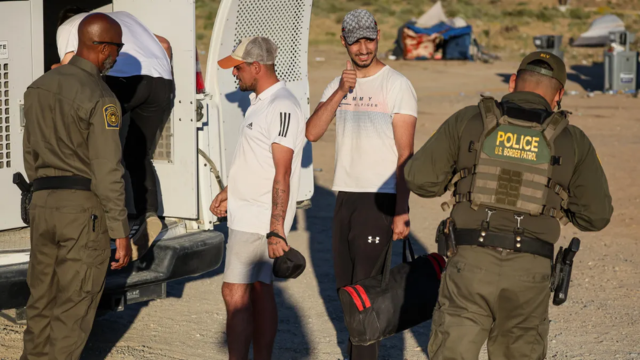A judge in California told the Border Patrol that they can’t arrest someone they think is living in the U.S. illegally unless they have a warrant or a good reason to think the person will run away before they can get one.
U.S. District Judge Jennifer L. Thurston’s decision on Tuesday also says that Border Patrol agents can’t stop people without a good reason to do so or send them back to their home countries through “voluntary departure” unless they are told their rights and agree to leave.
Thurston said that the ruling only affects people who live in the court’s Eastern District of California. In January, dozens of people were caught in the Eastern District of California after the Border Patrol started an immigration enforcement action called “Operation Return to Sender.”
The ACLU sued Kristi Noem, Secretary of Homeland Security, and employees of the U.S. Border Patrol on behalf of the United Farm Workers labor union and people who were targeted by the Border Patrol raids.
A group called the ACLU said that border patrol agents detained people for almost a week without a warrant because they “appeared to be farmworkers or day laborers, regardless of their actual immigration status or individual circumstances.” The detainees were taken by bus to the border and held there without being able to reach their families or lawyers. The ACLU said they were forced to sign papers saying they gave up their right to see an immigration judge and willingly agreed to leave the country.
“The evidence before the Court shows that Border Patrol agents working for DHS did things that were against established constitutional rights,” Thurston wrote. She said that every 60 days until the case is over, the Border Patrol would have to give a report detailing who is being held or arrested without warrants and why.
Lawyers for the Border Patrol said the judge didn’t have the power to hear the case because federal law says that an appeal can usually only be made after an immigration judge has made a final decision. The government’s lawyers said the case was pointless because the U.S. Border Patrol had already given its agents new training and instructions on when people can be stopped or arrested without warrants and what rights people have after being arrested.
Thurston, however, said that the Border Patrol can’t say that the case is no longer valid just because it changed its policy after being sued. The new policy doesn’t have strong enough language to stop the illegal stops, according to Thurston. Also, there’s no reason to think that the policy won’t be changed again in the future.




More Stories
California Judge Restricts Border Patrol: Warrantless Arrests Curtailed in Central Valley
California Judge Restricts Border Patrol: Warrantless Arrests Curtailed in Central Valley
California Judge Restricts Border Patrol: Warrantless Arrests Curtailed in Central Valley